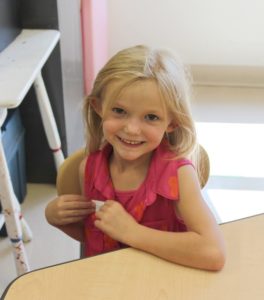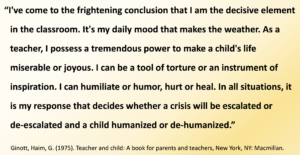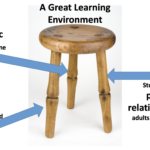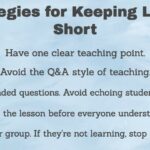Six Strategies for Getting to Know Your Students
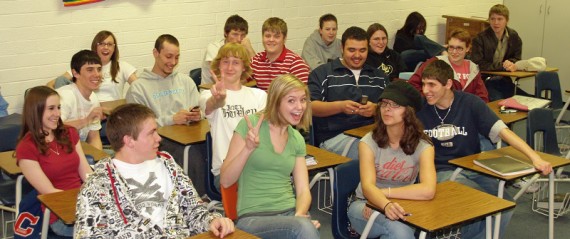
One of our primary goals at the beginning of the school year is to get to know our students. This is important for several reasons. First, the better we know our students, and the more they know we know them, the more invested they become in school. Also, a dynamic and vigorous learning environment is built on relationships. When we create strong connections with our students, we create a learning environment where risk-taking and collaborative learning can take place. Finally, the better we know our students, the better we can help craft learning experiences that match who they are. Knowing our students is fundamental to real differentiation.
Several of the ideas that follow are shared in The First Six Weeks of School (2nd edition), which I authored. A few others come from a webinar I taught recently. A couple of ideas are unique to this post. I’ve offered six different ideas for getting to know our students, one for each of the first six weeks of school, but once you get past the first one, there’s no magic to the order. Consider each as an idea that might help during this foundation time of the year.
Is there anything more important and basic than learning students’ names early in the year? Make it your goal to have all names learned by the end of the first week. There are lots of practical strategies for learning names: wear name tags, play name games, use students’ names frequently, and of course, practice-practice-practice.
Week 2: Share Goals
What do your students hope to gain from this school year? Have them share their academic and social goals for the year. They might all fill in a questionnaire for you to read, or you might create a bulletin board where each student shares one personal hope or dream for the year.
Week 3: Get to Know Families
The more we know our students’ families, the better we understand our students, and the more connected our students are with school. Make it a goal to call each family in the first few weeks of school. Share a positive observation of their student, and then ask parents/guardians what you should know about their child to best teach them. You might also consider having families fill out a hopes and goals questionnaire about their children for the school year. I’ve done this many times, and it’s incredible how much you can learn!
Week 4: Birthday Cluster Activity
In his incredible book about child development in the classroom, Yardsticks, Chip Wood suggests an activity to get a sense of the developmental tone of your class. Make a list of your students in order of their birthdays (from youngest to oldest) and look for the cluster of students who all have birthdays within a few months of each other—almost every class has one. This group will often set the developmental tone for the room. If the cluster is on the young side, for example, your class will likely feel young. Knowing this about your class can help you better match your instruction to the class as a whole.
Week 5: Share Personal Artifacts
Invite students to share simple personal artifacts that help show their interests and passions. This might happen on an “All About Us” bulletin board, in a class scrap book, or on personal wall spaces—places where each student can post work, pictures, or other small items which help share who they are. These artifacts can serve as inspirations for writing personal narrative pieces, or, if displayed around the classroom, can be a fun way to play a personal scavenger hunt game. Of course, you will learn all kinds of great information that will help you tailor units and lessons to students’ interests!
Week 6: Don Graves Activity
I was lucky enough to attend a workshop once with Don Graves, an educator who helped reshape the teaching of literacy, and he did this activity with us. It is a great litmus test for how well we knew our students. Week 6 is a great time to try it yourself! Here’s how it works.
- Create a three-columned chart on a piece of paper or on a simple table/spreadsheet on the computer.
- In the left column, write your students’ names in the order in which you remember them. (Just this alone is interesting. Who do you remember first? Who do you struggle to remember?)
- In the middle column, write down one positive thing about each student that doesn’t have anything to do with school work. (Jenny likes horses. Matt skateboards. Maria lives with her grandmother.)
- In the third column, put a checkmark if you have talked with each student about this piece of knowledge. This helps us recognize how well we know our students, and—perhaps more importantly—how well they know we know them!
- For students you struggled to remember, or for ones you didn’t know as much about, make a commitment to connect with them in the next few days.
These are, of course, just a few ideas. There are lots of other ways to get to know our students and build positive relationships with them. What are some other ideas you have tried? Share in the comments on this post so others can learn from you!
To learn more about the beginning of the school year, consider checking out The First Six Weeks of School or viewing a webinar I taught: The First Weeks of School: Best Practices for Teachers.
Have a great start to the year!

